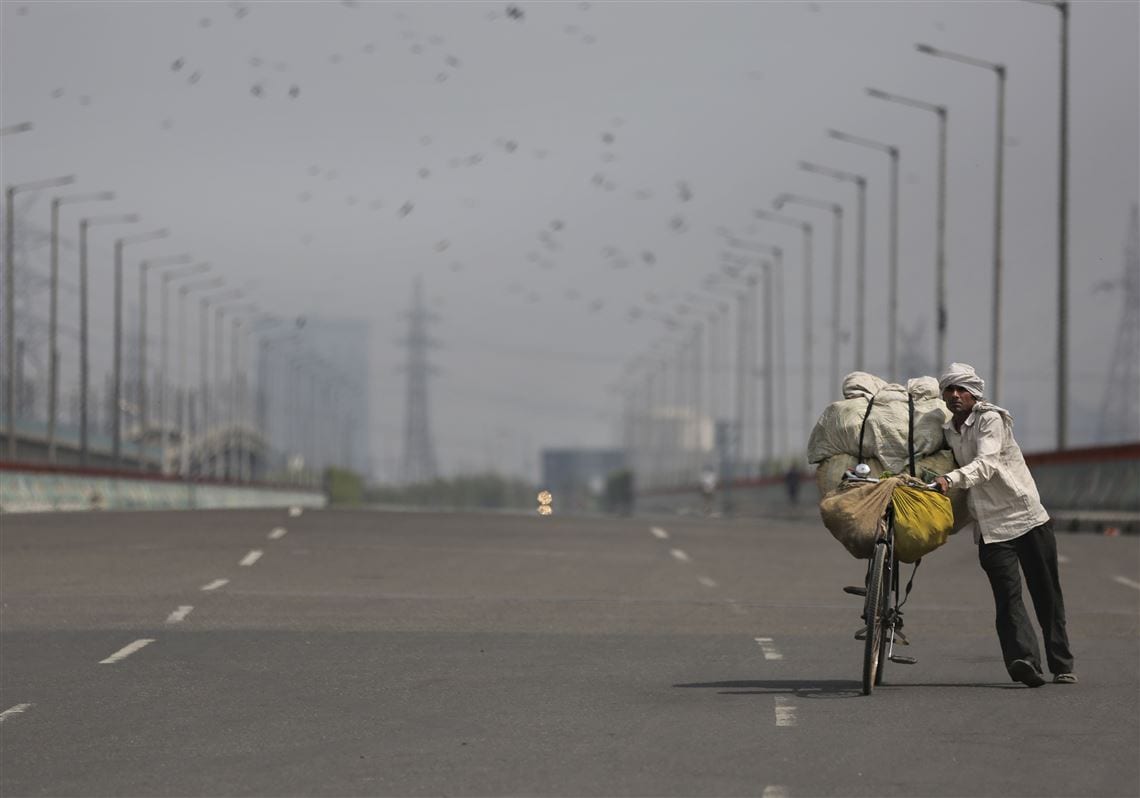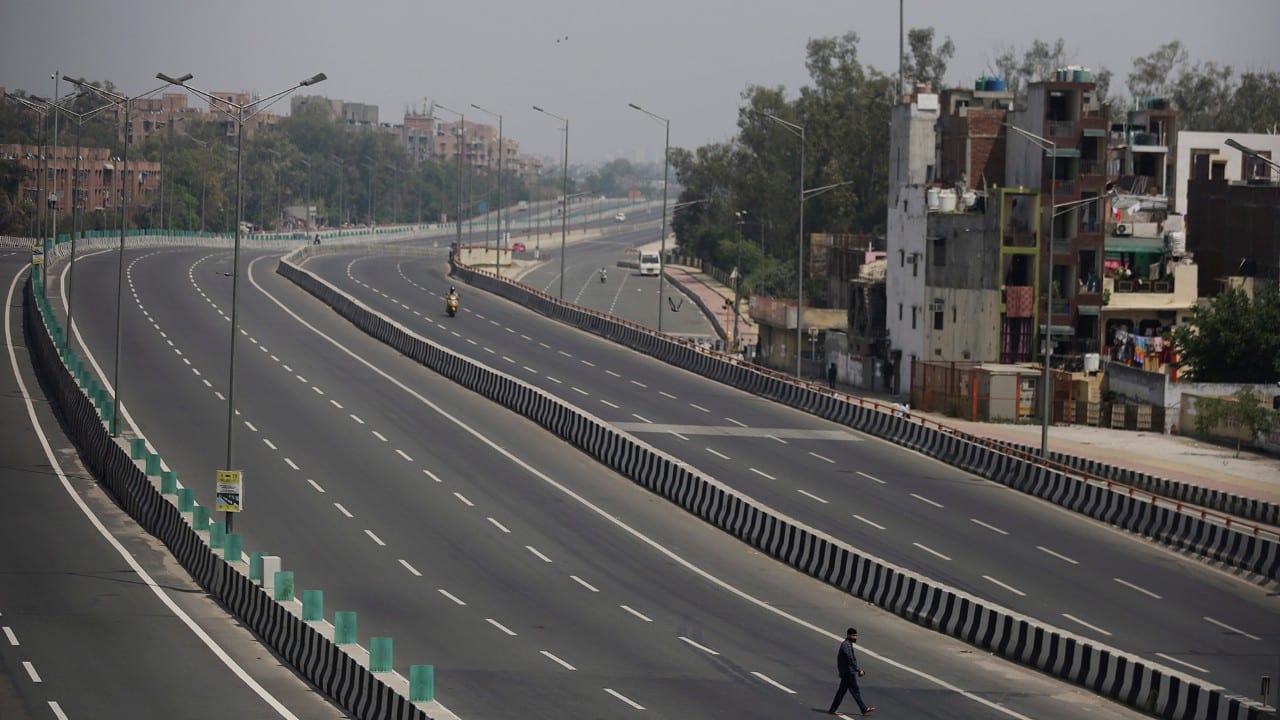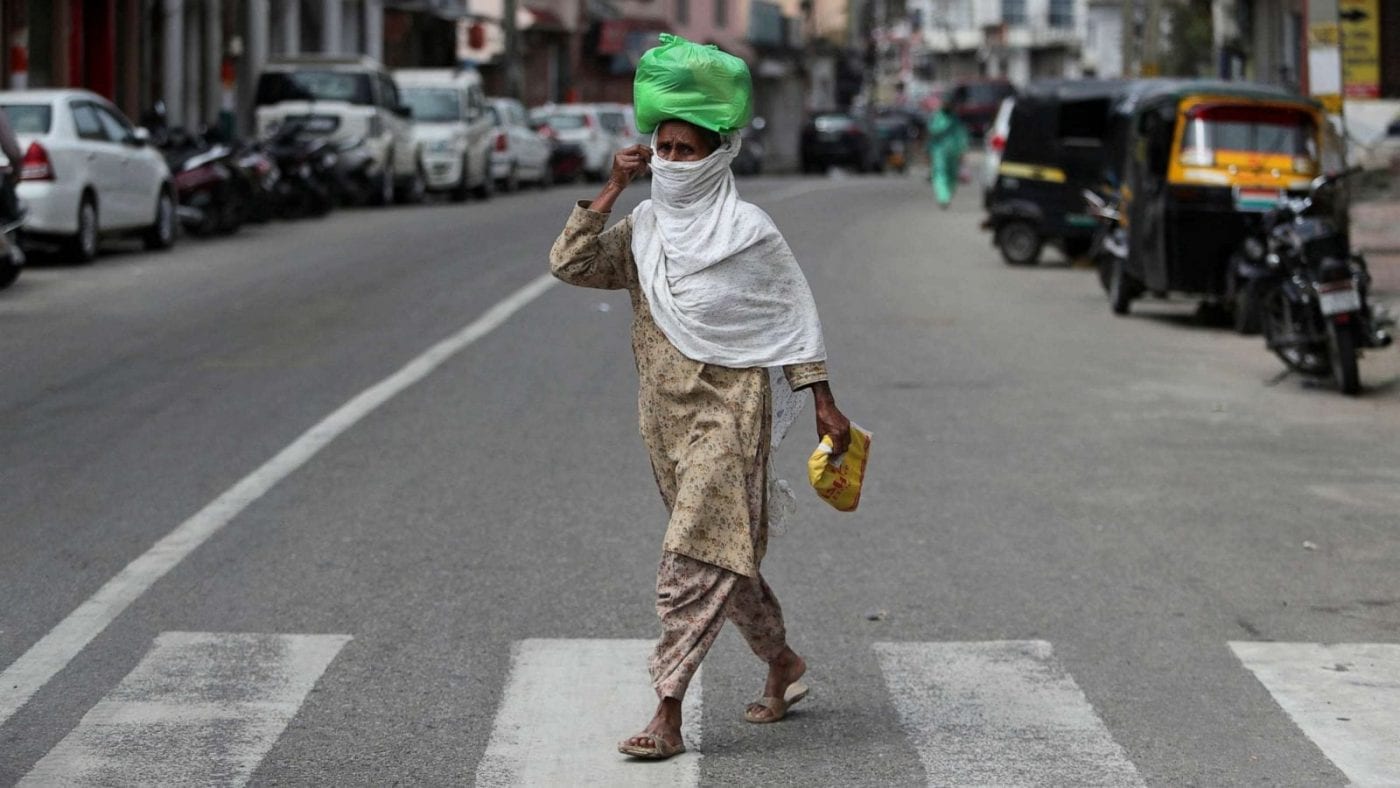
COVID-19: Three Journalists Tell Us What It’s Like Inside India’s 21-Day Lockdown
Lifestyle Apr 10, 2020
With India in the middle of their 21-day lockdown we took to three journalists on the inside — one from Mumbai, one from Delhi and one from Hyderabad to report back to us on what it’s like. Here are their stories.
It has been 13 days since India announced a complete lockdown. Narendra Modi announced a 21-day lockdown on March 24 (with four hours notice) to slow down the spread of COVID-19. This essentially means 1.3 billion people have been asked to stay home and businesses are all shut. Besides doctors and other essential services, journalists have also been working 24/7 to cover the pandemic.
We speak to three journalists — Aamir, a print journalist from Delhi, Dishya, an online lifestyle journalist from Mumbai, and Sunaina, an online journalist from Hyderabad. They tell us what it is like to be working during a lockdown, how prepared was the nation for the lockdown, and how long the situation will prevail.
Mrinalini Sundar: How has life changed since the lockdown started?
Dishya: For someone who is constantly on the move, the lockdown has just paused life. While I am constantly working, of-late I have been spending more time connecting to people, cooking and taking extra care of myself and the surroundings.
Aamir: Life has extraordinarily changed both professionally and personally. Meeting people in the field of my work is essential to gather stories. But that has changed now. I must depend on phone calls and resort to online news gathering to fulfill my daily quota of news. It’s turned quite tasking as going out has completely stopped. On the personal side, work at home has increased manifold. It’s draining both mentally and physically. Household chores take up a lot of time and energy.
Sunaina: So, to say it has changed drastically is an understatement. The nature of my job, in general, requires me to go out there, explore the city. And basically, do outdoorsy stuff. I haven’t stepped out of my house in four weeks. As someone who doesn’t like to stay put in one place, I truly find it claustrophobic to remain confined to my room. I find it difficult to stay focused and be extremely productive because there are way too many distractions at home. I get more time to spend with my family though and catch up with my friends. Which keeps me sane, thankfully!

MS: How are you managing the lockdown in terms of mental health and fitness?
D: The lockdown has taken a huge toll on my mental health, especially since I am living by myself. There are days when the uncertainty of the situation gets under the skin and leads to major anxiety. Thankfully, I have developed fighting mechanisms like dancing and taking a stroll on the terrace to help mental and physical well-being.
A: It’s difficult to follow a strict routine life right now given that my wife and I must look after cooking, cleaning and washing clothes. Sometimes the disproportionate time ratio of relaxation, or recreation in comparison with WFH and household chores does affect my sleep patterns. Despite the bouts of disturbed sleep, however, I try and get back on track with yoga and meditation. The confinement is affecting my mental health, and I avoid social media to retain some sanity. Yoga has helped in taking out “me time” during the day and divert my attention to my mental and physical being. Yoga followed by meditation creates a healthy balance of our mind space and physical fitness, I feel.
S: I have been super anxious even before the lockdown began due to the disease. I am a hypochondriac and the thought of falling sick scares the hell out of me. The first few days were testing me but now I do little things that make me feel better. I watch a lot of Studio Ghibli movies, read books that are limited to folk tales or anything that’s not too dark. Children’s classics have been helping. I am someone who goes to the gym 4-5 times a week, so to be stuck home is problematic. Home workouts don’t interest me much, but I do them with a lack of motivation.
MS: Did you think the government gave enough notice about the lockdown?
D: Not really. The overnight announcement led to so much chaos around me.
A: It could have been handled in a better, more organized way. Keeping aside the privileged class, a short notice of the lockdown primarily affects people of the three categories — migrant workers, people in the unorganized sector and the poor. To travel back home, gather food and other essentials for survival is a real challenge for them.
S: No, they didn’t give enough time. Personally, I was expecting this, and our family was prepared. But I have mixed thoughts about it when it comes to the entire country. Since Hyderabad was able to plan it out, it planned out well for us but places like Goa, Uttar Pradesh, Delhi took a hit. The central government should have given the state government a heads-up to plan this out.
MS: What did they do right or wrong about the announcement?
D: They could have given us a better understanding of the situation. India is entering such kind of a lockdown for the first time. A little more assurance — food, shelter and job-wise — would have made the situation a little easier to deal with.
A: Announcement of a lockdown, as such, was the right thing to do in these circumstances. Ours is a population of 1.3 billion and given the state of the health system it becomes all the more important to minimize community contact and as a result, the spread. So the lockdown is perhaps the only option. However, as I mentioned earlier, its execution could have been carried out in a more planned manner.
S: The only wrong is — it could have planned it out properly. Should have kept the migrants, daily wage workers in mind while doing this. While I get they have prioritized the practice of social distancing, everyone is clueless about it. Because this is the first time we have been quarantined. Only after planning the ration, supplies, relocation, this should have been done. I don’t mean the lockdown should have started later but the state government should have gotten a heads-up to start planning!

MS: As a media professional, how do you feel about the state of those who are in essential services?
D: On one hand, I feel it is unfair because we are working overtime to make sure news from across the globe is covered and the website is functioning as per usual. On the other, when I see other media people in my circle, whose incomes are based on television/film productions, suffering due to loss of pay, as selfish as this may sound, but I am glad at least I have work.
A: A better regulation on the police handling the facilitation of essential services and clarity on dos and don’ts would help manage the situation better.
S: I feel both sad and proud. We have doctors in the family and it makes me very anxious to know they are at risk, every day. There are not enough masks and kits for them. Doctors are treated poorly. They are abused every day in our country and in several parts of the world. It makes me feel helpless that they have to do this for people who don’t deserve them.
MS: Did you stock up enough before the lockdown?
D: Thankfully I did.
A: Yes, we did. But we are a little better off and manage to buy essentials even now.
S: Yes! Like any Indian family, we buy our provisions like pulses and the like for a month in advance. We get vegetable and fruit trucks in our colony, so that’s sorted.
MS: How long do you think this situation will continue?
D: I am hoping it ends soon. But looking at the #COVIDIOTS in the country, I feel it could extend until May.
A: It’s difficult to tell right now as we are a few stages behind other affected countries. It’ll depend on how we respond to the first few phases of the lockdown and if at all, it has helped us in flattening the curve.
S: It will last 3-4 months at least.
MS: What’s the biggest challenge faced by the peoples of India under the Lockdown?
D: The understanding to stay put. So many people refuse to follow rules, and this is costing so many cases for the country.
A: The mismanagement of the facilitation of essential services, struggle of the migrant workers and ambiguity over how the below the poverty line or BPL families living in clusters, shanties, and slums are supposed to respond to it have been the real challenges.

S: Unemployment. How will people find jobs at this time? Of course, if you’re healthy and kicking, it’s great and the most important thing right now. But several people live month to month. So, well we’re screwed.
Main Image Photo Credit: www.cnn.com
Mrinalini Sundar
Author
Mrinalini Sundar (new_girl_in_to) has worked with various Indian national, international publications including Times Of India and is currently based out of Toronto. She's constantly in search of high adventure, exotic food, and new experiences. She is the happiest amidst mountains, with no wi-fi.













































































































